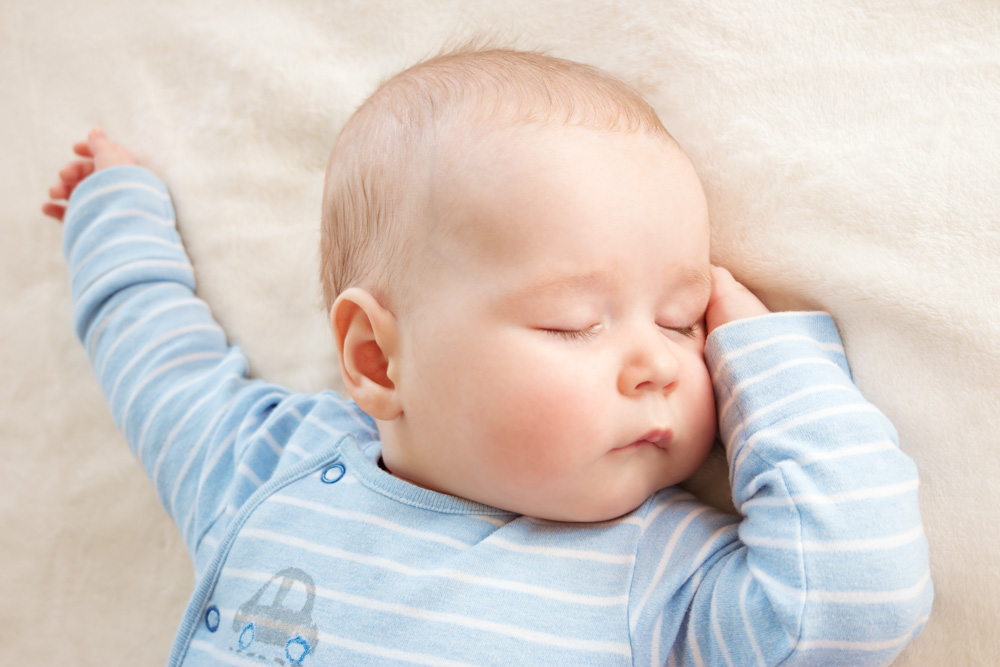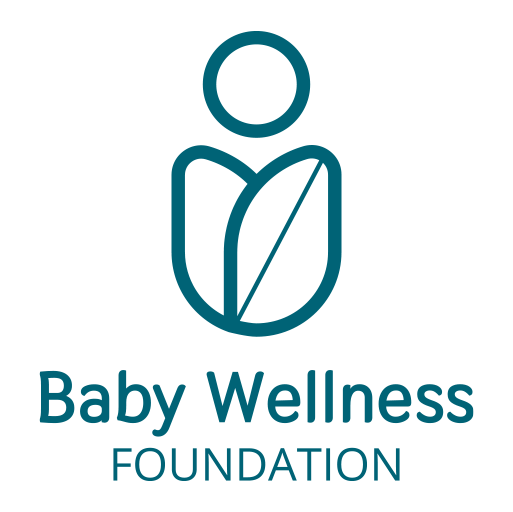La buona nanna
Chapter 9 – Sleep Disorders
CATEGORIA: A good sleep
INTERESSA: 0+
TEMPO DI LETTURA: 6 min
Even the most peaceful and sleepy baby can go through phases where falling asleep suddenly becomes more difficult, night awakenings increase, and crying becomes inconsolable. Sometimes this is simply due to discomfort caused by separation from the mother. Other times, however, it may be triggered by certain physical ailments.
- One of the most common causes is the common cold. A baby with a stuffy nose may struggle to fall asleep—especially while lying down—because breathing becomes difficult, making them feel like they’re suffocating. Respiratory tract infections are frequent in early life because every virus the baby encounters is new to their developing immune system. There are no effective medications for the common cold, and nasal decongestants are not recommended for young children. What parents can do is help clear the mucus, by spraying a few drops of saline solution (at about 33–34°C) into the baby’s nostrils. It may also help to place a small pillow or folded towel under the crib mattress to gently elevate the baby’s upper body, aiding breathing. During the infection, it’s important to keep the baby well hydrated—offer the breast frequently, or water if they’re older. If the baby shows signs of prolonged discomfort or fever, it’s time to consult the pediatrician.
- If the baby recently had a cold and cries while touching their ears, they may have anear infection (otitis) – an inflammation due to mucus buildup in the middle ear, which causes pain and pressure. Sometimes accompanied by fever, it may become apparent if the baby refuses to nurse or bottle-feed due to the discomfort while sucking. Most ear infections are viral and don’t require antibiotics. Pain relievers such as acetaminophen or ibuprofen can help alleviate discomfort, but always consult a pediatrician before giving medication. In the meantime, clearing the baby’s nose with saline can reduce ear pressure, as the middle ear connects to the nasal cavity.
Subscribe to the newsletter
Be the first to receive the latest news from the Baby Wellness Foundation!
- Another typical issue that can affect evening sleep is gas colic. Despite the name, colic may not be caused only by intestinal gas. One theory is that these crying spells are the baby’s way of releasing tension accumulated during the day, as their nervous system is still immature. These episodes can last for hours and occur sporadically or daily, but they are generally harmless and resolve on their own by the third month.
It’s a good idea for parents to consult the pediatrician to rule out other causes. If it’s truly colic, calming techniques include dim lighting, gentle rocking, tummy massages, or skin-to-skin contact. A little milk or water may help too. - Another issue is gastroesophageal reflux, particularly after meals. This can wake the baby or make it difficult to fall asleep. particularly after meals. This can wake the baby or make it difficult to fall asleep. In the first months, the lower esophageal sphincter (cardia) is immature, allowing stomach contents to rise into the esophagus during digestion. Spitting up a little milk or food is normal. However, if this is accompanied by discomfort, it may be due to esophageal irritation from acidic stomach fluids. Holding the baby upright after feeding (resting on a parent’s shoulder) helps food settle in the stomach. Before sleep, you can also slightly incline the baby’s sleeping position by placing a towel or wedge under the mattress. Some cradles or bassinets in modular systems are designed with adjustable inclines to support this.
- Teething is another common issue that can disrupt nighttime sleep. As teeth begin to erupt, swollen and irritated gums can cause discomfort. While it’s a natural process, it can be relieved by offering a cold teething ring or providing extra cuddles and affection.
- Physiological changes like motor development milestones, (e.g., crawling or standing up) during the second half of the first year can also interfere with sleep. These achievements often coincide with increased restlessness and trouble falling asleep.
- Lastly, separation anxiety plays a major role. Around eight months of age, babies gain more awareness of their surroundings and begin to understand they are separate individuals from their parents, who sometimes go away. This realization may cause alarm, especially during separation moments like bedtime. Children may resist sleep strongly, as falling asleep means being separated from familiar people and places.
This phase is normal and temporary. What helps is showing empathy, offering reassurance, and being present during this transition. Establishing a calm and loving bedtime routine in a serene atmosphere can prepare the baby for sleep and ease the experience.

Bibliografia
(18) O. Atun-Einy, A. Scher, “Sleep disruption and motor development: Does pulling-to-stand impacts sleep-wake regulation?”, Infant Behavior and Development, 42 (2016) pp 36-44
Leggi le opinioni di...
Leggi le opinioni su questo articolo da parte di fonti autorevoli in campo scientifico o di aziende specializzate.

No comment yet, add your voice below!